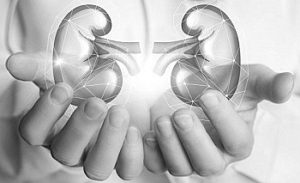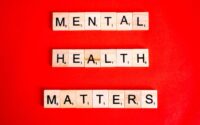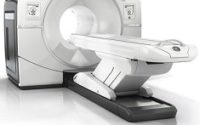What Is Kidney Stone | Causes | Symptoms | Treatment
What Is Kidney Stone | Causes | Symptoms | Treatment: Kidneys are a pair of fist-sized organs on either side of your back, located above the waistline and protected by the ribs.
What are the functions of kidneys?
- Kidneys are considered the master chemists of the body.
- They balance the body’s water content and body chemicals.
- They remove waste products from the blood.
- Kidney’s produce various hormones and chemicals that help in producing red blood cells.
- They help the body use vitamin D, which keeps your bones strong and healthy
- They keep your Blood Pressure under control.
 How does the urinary system work?
How does the urinary system work?
The urinary system consists of a pair of kidneys and ureters, the bladder and the urethra.
Kidneys – remove wastes from the blood; Ureters – carry these waste products as urine from the kidneys to the bladder; Urethra finally passes out the urine from the body.
What is a kidney stone?
A kidney stone is a hard crystal mass that develops from crystals or small particles that dislodge from the urine and build up inside the kidney.
Kidney stones vary in size and can be as small as a grain of sand, or as large as table tennis ball. Stones may appear in any part of the urinary system.
What factors contribute to kidney stone formation?
Several factors contribute to kidney stone formation:
- Recurrent urinary tract infections
- Drinking too little fluid
- Blockage of the urinary tract
- Consumption of large amount of red meat, vitamin C, calcium in the diet may contribute to kidney stone
- Taking medications like calcium-based antacids
- Metabolic disorders such as hyperthyroidism
- Gout and chronic bowel inflammation
What are the symptoms of kidney stones?
- Sudden severe pain in the lower back or lower abdomen that moves to the groin [when a stone moves in the urinary tract]. The agony may last for minutes or hours, followed by periods of relief.
- Pain may be accompanied by nausea and vomiting. If there is urinary tract infection as well, symptoms may include fever, chills, sweats, and painful urination.
- There may be evidence of blood in the urine.
- There may be symptoms of urinary tract infection like burning urination, the urge to urinate frequently, and cloudy or foul-smelling urine.
Some people have no kidney stone symptoms until they pass gravel-like stones in their urine.
Who is affected by kidney stones?
Kidney stones affect more men than women [ratio of 3:1] between 20 and 40 years. Stones usually occur in summer due to dehydration.
Why worry about kidney stones?
The pain associated with kidney stones is unbearable. Kidney Stones may lead to kidney failure, which is life-threatening.
Stones that block the kidneys may cause pain. When the block is not removed, the pain may recede in few days to mislead the sufferer to think that the crisis has passed, when in fact, the blocked kidney has shut down. If left untreated, this could lead to permanent kidney damage.
How are kidney stones diagnosed?
A complete medical examination, X-rays or sonogram, dye injections and ultrasound tests can be used to diagnose kidney stones.
How are kidney stones treated?
Most small stones pass out by themselves within hours or days. To help this process, drink lots of fluid and follow a special diet recommended by the doctor.
Small stones that do not pass by themselves are treated with high energy shock waves that break stones to the size of sand grains, so that it can be passed out easily in the urine. Surgery is usually reserved for larger stones.
How can you help prevent the re-formation of kidney stones?
Kidney stones recur in about 50% of cases. If you’ve had more than one kidney stone, there are chances of formation of another. Therefore, prevention is important. You can take steps after talking with your doctor to help prevent this from happening to you.
- Drink plenty of water every hour during daytime, and whenever you get up at night, at least 3 liters per day.
- Avoid large doses of vitamin C [4 gm or more daily] and excessive use of calcium-based antacids.
- If you already have calcium stones, avoid dairy products, tea, chocolate, coffee, nuts, palak [spinach], etc.
- Consume vegetables [radish and cucumber], fruits [watermelon], and cereals [horse gram and barley] frequently
The above information is not intended to be substitute for professional medical advice. Do not use this information to diagnose or treat your problem without consulting your urologist.



